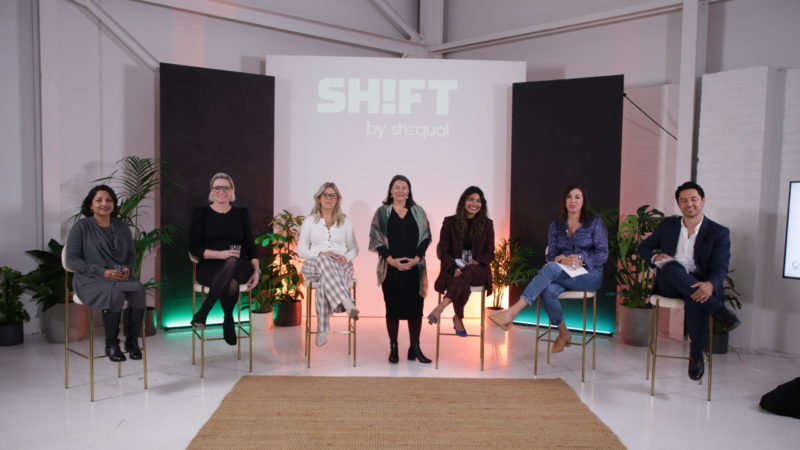30% of Australian advertising employees are having concerns of sexist content silenced
New research from ShEqual, an initiative led by Women’s Health Victoria, has found that the Australian advertising industry is silencing almost a third (30%) of people concerned by “potentially sexist content, such as dangerous female stereotypes”.
Speaking at a panel event in Melbourne last night hosted by comedian and TV personality Alex Lee, industry figures including UM Australia CEO, Anathea Ruys, Medibank senior executive, brand, marketing & CX, Fiona Le Brocq, head of creative, insights at Kantar Asia, and Australia, Irene Joshy, associate creative director at M&C Saatchi, Sarah Vincenzini, senior strategist at TBWA, Dhivia Pilai, and group account director at Icon Agency, Niall Hughes discussed the many stereotypes women continue to face in advertising representation.

L-R: Irene Joshy – Kantar; Anathea Ruys- UM Australia; Fiona Le Brocq – Medibank; Dianne Hill – Women’s Health Victoria; Dhivia Pilai – TBWA; Sarah Vincenzini – M&C Saatchi; Niall Hughes – Icon Agency

